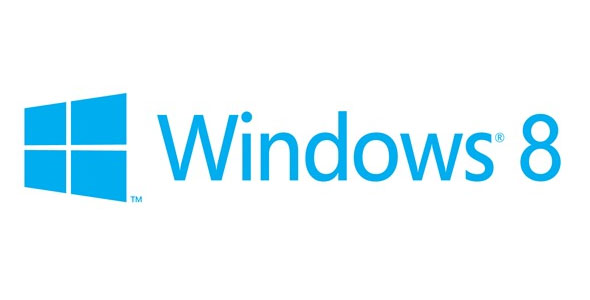Editorials
 Two days ago we wrote an article about how NPE (Non-Practicing Entities) are hurting the economy and small businesses. Our article was based on a report that was put together by the Boston University School of Law which showed that the use of NPEs in patent lawsuits cost $29 Billion in direct costs. Despite this many companies are moving to this model as a method of protection from patent lawsuits. We have seen Microsoft and Nokia do this and it seems that Qualcomm is splitting their business into two entities now too.
Two days ago we wrote an article about how NPE (Non-Practicing Entities) are hurting the economy and small businesses. Our article was based on a report that was put together by the Boston University School of Law which showed that the use of NPEs in patent lawsuits cost $29 Billion in direct costs. Despite this many companies are moving to this model as a method of protection from patent lawsuits. We have seen Microsoft and Nokia do this and it seems that Qualcomm is splitting their business into two entities now too.
- Details
- By Sean Kalinich
- Hits: 3648
 There has been a lot of talk about how Google is not making any money on the Nexus 7 and in truth they are probably not making much on hardware sales. This is not an uncommon trend to get products to the market at a cost that puts them in the consumers hands only to follow up with services that do generate income (in fact that is the business model of the cloud). The question is; if there is no margin for Google how much is there for Asus and why would they want to make these without making money per unit.
There has been a lot of talk about how Google is not making any money on the Nexus 7 and in truth they are probably not making much on hardware sales. This is not an uncommon trend to get products to the market at a cost that puts them in the consumers hands only to follow up with services that do generate income (in fact that is the business model of the cloud). The question is; if there is no margin for Google how much is there for Asus and why would they want to make these without making money per unit.
- Details
- By Sean Kalinich
- Hits: 4079
Read more: Are Google and Asus Breaking Even On The Nexus...
 We have talked (at length) about Microsoft’s new move to the cloud and also their push with the Windows 8 Ecosystem (which is the cloud). We have pointed out many items of concern as well as shown some of the good parts to the OS; such as faster boot times, much better windows explorer interface, significantly improved task manager etc. However, the one massive point that we cannot get past is the choice Microsoft has made in making the Xbox and Windows Phone the center of the connected home. What Microsoft has done with this mode of thinking is what earned me a D- on a science paper in High School; Concluding the Assumption.
We have talked (at length) about Microsoft’s new move to the cloud and also their push with the Windows 8 Ecosystem (which is the cloud). We have pointed out many items of concern as well as shown some of the good parts to the OS; such as faster boot times, much better windows explorer interface, significantly improved task manager etc. However, the one massive point that we cannot get past is the choice Microsoft has made in making the Xbox and Windows Phone the center of the connected home. What Microsoft has done with this mode of thinking is what earned me a D- on a science paper in High School; Concluding the Assumption.
- Details
- By Sean Kalinich
- Hits: 4891
 As we follow the MegaUpload case and by extension the case of Kim Dotcom and six other managers in the company we are finding out more and more about the US governments case against the file sharing site. Yesterday we published a two part article about some of the tactics used in the case that has slid from being active and interesting into a long siege with the US attempting to stop access to both funds and legal representation. Now we are finding out more about the original “evidence” against the corporation and the seven individuals.
As we follow the MegaUpload case and by extension the case of Kim Dotcom and six other managers in the company we are finding out more and more about the US governments case against the file sharing site. Yesterday we published a two part article about some of the tactics used in the case that has slid from being active and interesting into a long siege with the US attempting to stop access to both funds and legal representation. Now we are finding out more about the original “evidence” against the corporation and the seven individuals.
- Details
- By Sean Kalinich
- Hits: 3229
Read more: The MegaUpload Case Part III - Illegal Warrants,...
 Conflict of Interest; it is an interesting term. As an absolute definition it means; “when an individual or organization is involved in multiple interests, one of which could possibly corrupt the motivation for an act in the other.” As a legal term (as you might imagine) there are multiple meanings with enough ambiguity to keep things interesting. However, to one group of people most notably the MPAA and RIAA it is a way to support and defend their position in the world when they push their lawsuits around the globe. In part two of our look at the MegaUpload case we will dig into how the Content Industry and the DoJ have tried to deny even the right to a defense to MegaUpload.
Conflict of Interest; it is an interesting term. As an absolute definition it means; “when an individual or organization is involved in multiple interests, one of which could possibly corrupt the motivation for an act in the other.” As a legal term (as you might imagine) there are multiple meanings with enough ambiguity to keep things interesting. However, to one group of people most notably the MPAA and RIAA it is a way to support and defend their position in the world when they push their lawsuits around the globe. In part two of our look at the MegaUpload case we will dig into how the Content Industry and the DoJ have tried to deny even the right to a defense to MegaUpload.
- Details
- By Sean Kalinich
- Hits: 3108
More Articles …
- Google's Launch of Jelly Bean Illustrates Why ARM As Server CPU Has A Way to Go
- Tablet and Phone Makers Finally Getting Past the Eye-Candy Push By Including Better Audio
- Microsoft's UEFI Secure Boot Locking Out Choice and The Competition In The Name of Security
- The Myth of Quad Core SoCs and LTE To Be Dispelled Soon by nVidia
Page 46 of 89



